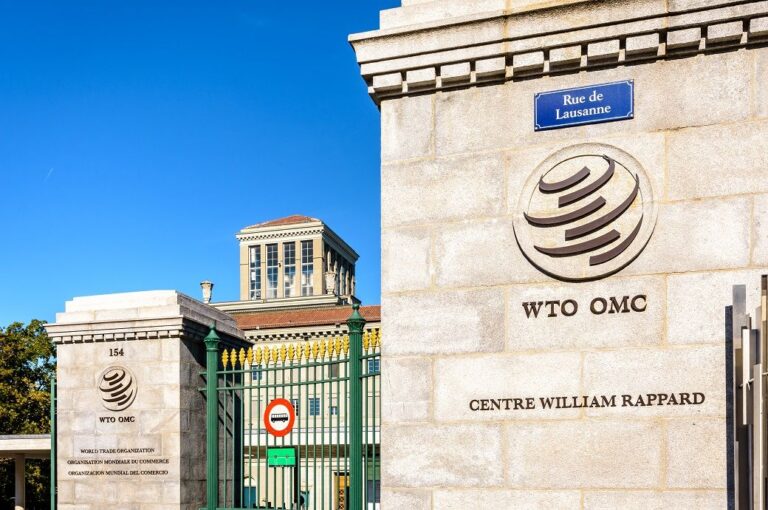
[ad_1]
“We say the future of trade is services; it’s digital; it’s green. And it should be inclusive,” said Ngozi Okonjo-Iweala, director-general of the WTO, at the World Economic Forum Annual Meeting 2023 at a session on trade, growth, and investment.
The WTO and others have warned that deglobalisation would negatively impact the world and especially emerging economies. The future of trade was touted to be green, digital, and inclusive even as declining global growth has posed a challenge for the 2023 trade outlook against a backdrop of the ongoing Ukraine war and unstable supply chains.
Many nations have seen a push to relocate manufacturing closer to consumers’ demand, after supply shocks associated with port blockages, the war in Ukraine, and the pandemic. Moreover, concerns about national security have caused many nations to question their over-reliance on certain countries for critical goods and services, such as European dependence on Russian energy, according to a press release by the World Economic Forum.
“For the US, Mexico is likely to be a major beneficiary of the US reconfiguration of supply chains, given Mexico’s educated workforce, low wages, railway transport, and pro-business political climate,” noted Laurence D Fink, chairman and CEO of BlackRock. “But Mexico is not going to be the sole beneficiary of that change,” he added, citing Eastern Europe, Turkey, Indonesia, and other parts of South-East Asia as well.
Okonjo-Iweala said the future of trade must also prioritise inclusivity. As many countries prioritise national security in their trade policy, there is a risk that “friend-shoring” would distribute the gains of economic growth unequally. “When we talk of ‘friend-shoring,’ I don’t know who is a friend,” he said. “I don’t ever hear countries in Africa mentioned.”
Creating a trade agenda that prioritises inclusivity and decarbonisation is a major priority. Many European governments have welcomed the recent embrace of sustainability in US economic policy. “The world can only be happy that the United States has moved to the right side of the aisle on climate,” said Alexander De Croo, Prime Minister of Belgium.
Ensuring that sustainability remains at the top of the global trade agenda will require coordination with multilateral agencies. As many nations seek out bilateral trade agreements, there is a risk of global trade splintering into trading blocks. Promoting a trade agenda that is fair, inclusive, and sustainable will require institutions such as the WTO to establish clear ground rules for all nations.
Fibre2Fashion News Desk (NB)
[ad_2]
Source link